Related Research Articles

Ivana Ranilović-Vrdoljak better known by her stage name Vanna, is a Croatian pop singer.
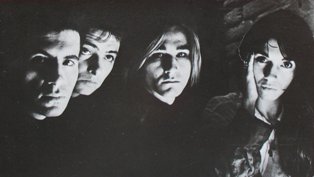
Ekatarina Velika, sometimes referred to as EKV for short, was a Serbian and Yugoslav rock band from Belgrade, being one of the most successful and influential Yugoslav music acts.

Prljavo kazalište is a rock band from Zagreb, Croatia. Since its formation in 1977, the group changed several music styles and line ups but remained one of the top acts of both the Croatian and Yugoslav rock scenes.

Bajaga i Instruktori are a Serbian and Yugoslav rock band formed in Belgrade in 1984. Founded and led by vocalist, guitarist and principal composer and lyricist Momčilo Bajagić "Bajaga", the group is one of the most notable acts of the Yugoslav rock scene.

Parni Valjak is a Croatian and former Yugoslav rock band. They were one of the top acts of the former Yugoslav rock scene, and one of the top rock bands in Croatia.

Jugoton was the largest record label and chain record store in the former Yugoslavia based in Zagreb, SR Croatia.

Darkwood Dub was a Serbian alternative rock band formed in Belgrade in 1988. In the years after the formation the band gradually grew to prominence on the Serbian rock scene, eventually becoming one of the most notable acts of the 1990s and 2000s Serbian and regional scene. Their music spawned many different genres. It was characterized by a mixture of live drumming and electronic percussion with frequent use of slide guitar, synthesizers and samplers and succinct and introspective lyrics, sung with offbeat vocals of Dejan Vučetić. The band cooperated with a number of musicians—most notably prominent jazz musicians Vasil Hadžimanov and Bisera Veletanlić—and composed scores for several films and theatre plays. The group released eight studio albums before disbanding in 2017.

Margita "Magi" Stefanović was a Serbian musician best known as a keyboardist of a Yugoslav rock band Ekatarina Velika (EKV).
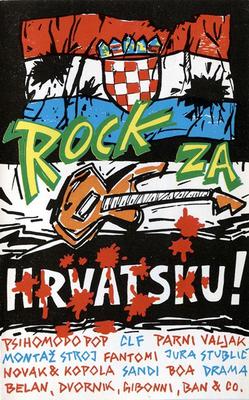
"The Best of Rock za Hrvatsku" was a popular compilation album of anti-war and patriotic songs released in 1992 during the Croatian War of Independence. Some of the contributing artists had been popular across the then recently defunct federation of Yugoslavia, namely Psihomodo pop, Jura Stublić, Parni valjak, Boa and Aerodrom's Jura Pađen. These artists took a pro-Croatian stance as the breakup of Yugoslavia and the Yugoslav Wars began, while others such as Azra did not participate because they disbanded and because of Branimir "Johnny" Štulić's publicly known frustrations with politics of the time.

Pokvarena mašta i prljave strasti is the second studio album from Serbian and former Yugoslav rock band Riblja Čorba, released in 1981.

Cacadou Look was a five-piece pop rock band from Opatija, Croatia that was the first Yugoslav all-female band to release a long play record.
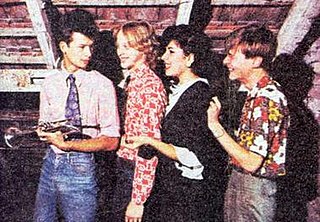
VIA Talas was a former Yugoslav new wave band, notable as one of the participants of the Artistička radna akcija project. The band name featured the prefix VIA added to the former Yugoslav 1960s rock bands, which stands for 'vokalno-instrumentalni ansambl'.

Josipa Lisac is a Croatian pop rock singer.

Dnevnik jedne ljubavi is the debut album by Croatian singer Josipa Lisac, released by Jugoton in 1973. Karlo Metikoš and Ivica Krajač, the music and lyrics authors, dedicated the album to Lisac, as the first letters of each song form an acrostic with her name.
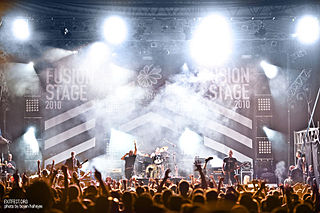
Ritam Nereda is a Serbian and Yugoslav oi!/punk rock band from Novi Sad.
Dragomir "Gagi" Mihajlović is a Serbian rock guitarist.
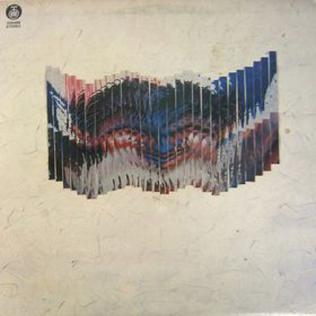
Jahači magle is the third studio album from Serbian and former Yugoslav rock band Bajaga i Instruktori, released in 1986.
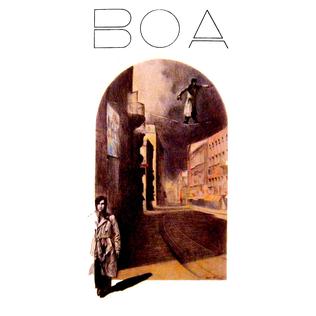
Boa is the eponymous debut album by the Croatian and former Yugoslav rock band, Boa. It was released in 1982.

Zdenka Kovačiček is a Croatian jazz and rock vocalist. She remains one of the most prominent musicians on the Croatian music scene.

Nirvana was a Yugoslav progressive rock band formed in Zagreb in 1970. Nirvana was a prominent act of the 1970s Yugoslav rock scene.
References
This article includes a list of general references, but it lacks sufficient corresponding inline citations .(April 2014) |
- ↑ "Tri desetljeća art rocka" (in Croatian). 15 May 2012. Retrieved 15 November 2012.
- 1 2 3 4 Bio at Menart Records record label, Croatia (in Croatian)
- Janjatović, Petar. Ilustrovana Enciklopedija Yu Rocka 1960-1997, page: 34, publisher: Geopoetika, 1997 Archived 2011-07-11 at the Wayback Machine (in Serbian)
- "Boa". hitrecords.hr (in Croatian). HitRecords. Archived from the original on 9 July 2009.